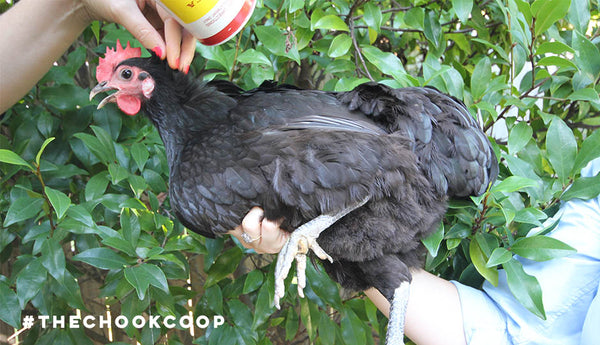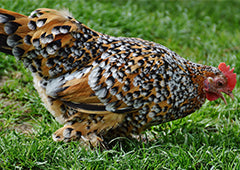Coryza is a scary word for backyard chicken keepers. It is an extremely infectious variety of respiratory infection, that can even result in death. This guide will take you through the symptoms, as well as treatment and prevention options.
However, please note that this is a guide only - it is not an alternative to veterinary advice. If you suspect that your chicken may have Coryza, a vet should be your first port of call.
Symptoms
Coryza shares a number of symptoms with other respiratory problems, and chicken illnesses in general. These include:
- Swollen eyes
- Pale comb
- Open mouth breathing
- Weakness and difficulty walking
- Not eating or drinking
- Not laying
The characteristic symptom of Coryza are swollen/weepy eyes and a runny nose, with the fluids having an extremely unpleasant, rancid stench. If your chicken is presenting this symptom, it is very likely infected with Coryza.
If there is a rotten smell from the chicken’s mouth, and no eye or nose problems, then it may instead be a case of sour crop.
Treatment
Always consult with your vet before giving any treatment. Coryza requires treatment with antibiotics which your vet will be able to prescribe.
If you cannot get your chicken to the vet immediately, be sure to isolate her from the rest of the flock until you can. Keep her in a warm, dry place and giving her food, water, garlic, and apple cider vinegar.
Unfortunately, even if your chicken survives, she will remain a carrier for life, and will need regular treatment with antibiotics to keep symptoms at bay.
Risk of outbreak
Coryza is extremely infectious, and chances are high that it has already spread through your entire flock already, although symptoms may take several weeks to develop.
If you have identified Coryza in your flock you really only have two options:
- Keep an infected flock - your girls can live out perfectly contented lives, and you will still be able to eat their eggs. However, you will not be able to introduce new chickens to your flock without infecting them, and you will have to be extremely careful not to pass the disease onto a friend or neighbour’s flock.
- Start over - this is a heartbreaking option for the chicken keeper, but may be the best course of action. You will need to cull your existing flock, disinfect their coop, feeders, and waterers, and wait 6 weeks until bringing new chickens in.
Prevention
There is no real ‘cure’ for Coryza, so effective prevention strategies are absolutely essential. The following measures are easy, and essential:
- Keep a clean coop to minimise bacteria build-up.
- Quarantine any new chickens that you buy for a minimum of 3 weeks. If they do not develop symptoms of Coryza (or, indeed, other illnesses), then you can introduce them to the rest of the flock.
- Try to limit the number of wild birds on your property - use a treadle feeder, remove their nests, and favoured trees, or even keep a cat.
- Vaccination is somewhat effective, although it does not offer guaranteed protection, and in some cases birds can remain carriers.
If your chicken is looking poorly, but you don’t think it’s Coryza, check out our guide to Sick Chickens.
With health issues like Coryza and bumblefoot, it can be stressful and worrying when things aren't going well with your chooks. We want to do an eggcellent job when caring for our feathered friends. From herbal treatments to disease prevention, make sure that you've got the knowledge you need to raise happy, healthy chooks. Did you know 67% of chicken keepers surveyed experienced a chicken health or behaviour issue in the first 12 months that they didn’t know how to handle?
But don’t worry! Our feathered friends over at Chickenpedia have created a Chicken Healthcare Course. It is a comprehensive online course that covers everything you need, including what to look for in an unhealthy chicken and how to support your egg-laying hens to optimal health. All of their courses are really well structured and filled with vital information, which is why I highly recommend them to all of my readers! From raising baby chicks to feeding to behavior, you’ll find valuable information that’ll give you the knowledge and confidence to successfully look after your chickens.
Check out Chickenpedia today. As a member, you will also get access to the ALL of their chicken courses!



















